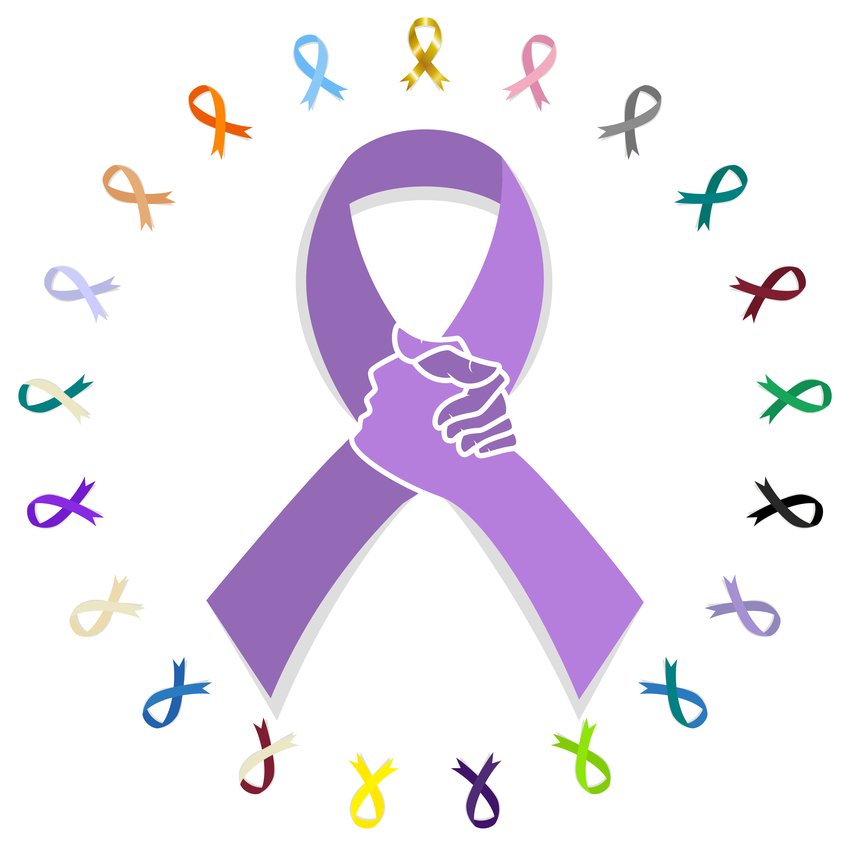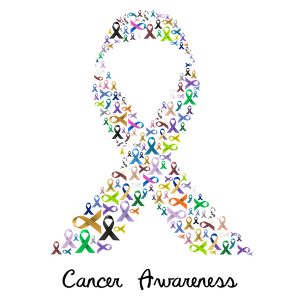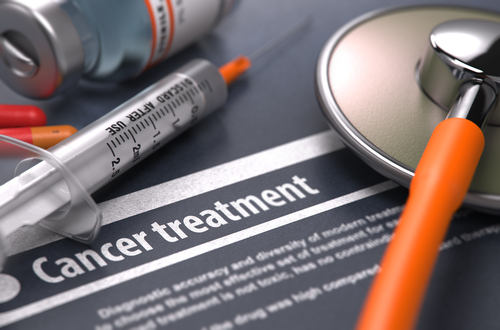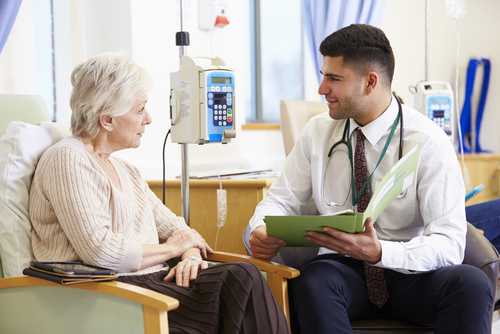In the United States, “National Cancer Control Month” is observed each year during the month of April. National Cancer Control Month is a federally endorsed observation that is annually encouraged by a proclamation from the President. Approved through a joint resolution by congress in 1938, the yearly announcement from the President is a reminder to all Americans that awareness surrounding the factors that may cause or prevent cancer should be paid attention to.
During National Cancer Control Month this April, we strive to support Americans fighting this disease, and recommit to aid in the progression toward controlling cancer. The month also focuses on raising awareness of the importance of living a healthy lifestyle, as well as the importance of having cancer screenings in order to prevent cancer.
INCREASING AWARENESS
According to statistics, most of us have been affected by cancer in one form or another. Either yourself, a friend, or a family member may have been given a cancer diagnosis at some point.
Increasing awareness during National Cancer Control Month also stresses the importance of maintaining a healthy lifestyle, as well as promoting cancer screening in order to prevent the various types of this disease.
Fortunately, for many years deaths due to cancer have steadily declined. This is due in part to better education and heightened awareness about how to prevent certain types of cancer, recognizing the signs and symptoms of cancer, and knowledge on how to seek proper treatment.
During the last decade, cancer-related deaths have continued to drop year after year, but it’s important to remember all that needs to be done to help keep cancer-related deaths at bay.
FACTS ABOUT CANCER
- Cancer is the second leading cause of death in the United States, only second to heart disease;
- Cancer deaths and rates have been declining since the early 1990s;
- About 50% of men and 33% of women will get cancer in the U.S.;
- Poor nutrition, obesity, or lacking in physical activity can be related to approximately 33% of cancers.
CANCER RISK FACTORS
- Age: over 75% of cancers are in people 55+
- Tobacco Use
- Poor Nutrition
- Heavy Drinking
- Physical Inactivity
- Exposure to Cancer Causing Agents at Work
- Prolonged, Unprotected Exposure to Sunlight
STEPS TO HELP REDUCE CANCER RISK FACTORS
Research has shown that lifestyle decisions may help to reduce your cancer risk factors.
Cancer researchers have identified several lifestyle decisions that Americans can make to reduce their risk of cancer, such as quitting tobacco, eating healthier, exercising regularly, using sun protection and undergoing recommended screenings.
Research has shown that not only does exercise help prevent cancer, it also increases survival chances for those diagnosed with cancer. Even a modest amount of exercise can have great benefits, as long as it becomes a regular, daily habit.
In fact, exercise has been shown to reduce the risk of colon cancer and possibly uterine, ovarian, lung and thyroid cancer.
AIDING IN THE EFFECTS OF CANCER TREATMENTS
National Cancer Control Month isn’t just about prevention. Another goal of Cancer Control Month is minimizing the chronic effects of cancer treatment for the growing population of cancer survivors in the US.
Currently, about 13 million Americans are living life after cancer. However, the life-saving treatments they used help put their cancer into remission also may have increased the risks of health conditions such as heart and lung problems, cognitive problems, and musculoskeletal problems.
Individual screening and management routines have been shown to catch and treat complications from cancer treatments in a timely manner. Since treatments such as chest radiation or chemotherapy drugs can increase the risk of heart complications, especially when used on a younger patient, it is recommended that cancer survivors who have had treatment should be monitored with regular ECGs.
Finally, it is recommended that if you or your loved one has had cancer, you should wear a medical ID bracelet. Cancer medical IDs should be engraved with all of your vital medical and contact information, so first responders would be able to take immediate action with your treatment in the case of an emergency. It is also important to engrave the pertinent information that would be helpful in the event that you are unable to communicate for yourself. Remember to also check with your doctor or nurse to see what they recommend you include on your medical ID bracelet.
CANCER AND YOUR ELDERLY LOVED ONES
If you find that you have an older loved one who has been recently diagnosed with cancer, you are facing a tough question: is it better to treat the cancer, or better to wait? (the latter being considered as an attempt to avoid treatments that could be debilitating because of your loved one’s age.)
Although 60 percent of new cancer diagnoses are in people age 65 and over, there is little research out there about how to treat elderly cancer patients, and if they should even be treated at all.
If your elderly loved one has been recently diagnosed with cancer, the best place to start is by learning as much information as you can from your loved one’s doctor, caregivers and medical professionals.
According to many sources, it is helpful to use a list of questions as a guide to help you make the most informed decisions when speaking with a medical professional about your elderly loved ones treatment options:
- What type of cancer does my loved one have?
- How common is this type of cancer?
- Where exactly is the cancer located?
- What stage is this cancer, and what does that mean?
- Do medical experts recommend treatment?
- What kinds of treatments are used for this type of cancer?
- What are the side effects of these treatments?
- How will the treatments affect my loved one’s current lifestyle?
- What will treatment likely cost, and will my loved one’s insurance cover it?
- What kind of lifestyle changes may help my loved stay as healthy as possible?
- What is the chance of recovery?
It is also important to keep in mind that while it is important to take into account what medical professional feel is the best course of action, what your loved one thinks is equally important.
No matter if your loved one is leaning towards going ahead with treatments, or adamant about avoiding it – you should listen to and respect their opinion. Taking into account all of these factors, it will be easier to decide on the best course of action for your loved one.
RESOURCES AND FURTHER INFORMATION
We have provided some reputable sources of information, that can aid in helping to research and provide further information on all of the topics we discussed about about “National Cancer Control Month.” Please click on the links provided below for further details.
To learn more about cancer in older adults, visit these sources:
- “No Single Path for Cancer Care in Elderly,” New York Times
- “Cancer and the Elderly,” The National Cancer Institute
For General Information:




